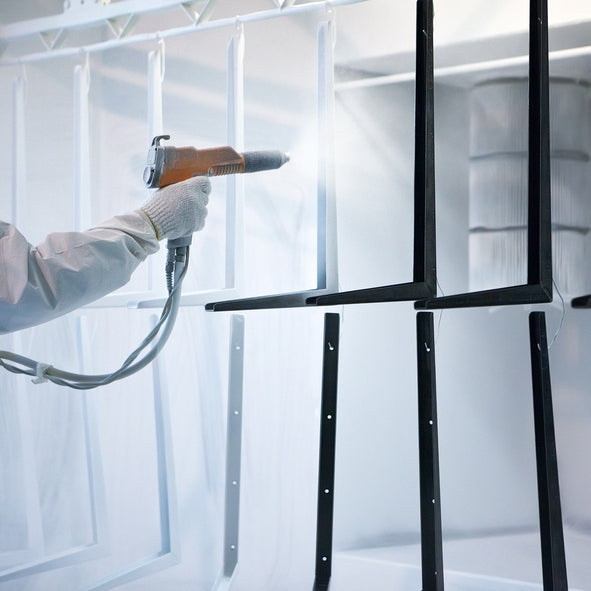
HOW LONG DOES POWDER COATING LAST?
Share
Powder coating can maintain its finish up to 15-20 years, depending on pre-treatment and the type of powder. Its resistance to weather, corrosion, and chemicals makes powder coating a more durable finish than paint or other liquid coatings.
POWDER COATING PRE-TREATMENT
Pre-treating your substrate is the most important process to getting maximum life out of your powder coat. Because the powder particles are electrostatically charged onto the surface, it’s imperative for that surface to be clean for proper adherence. Most pre-treatment includes stripping any existing coating and corrosion, and cleaning the bare metal.
If your substrate is pre-treated poorly or not at all, your powder coat will chip easily and have a very short life.
At PowderTech, our new automated six-stage pre-treatment system is the best solution available for a thorough and consistent cleaning. Even laser scale can be removed. Manual washes are also available, if your project requires it. PowderTech uses only environmentally safe chemicals for all pre-treatment solutions.
LONGEVITY OF POWDER COATING TYPES
There are various types of powders available for a range of applications.
Epoxy - Extremely durable and excellent resistance to corrosion and chemicals. Best used indoors, as sun and weather can cause fading and deterioration within a matter of months. PowderTech recommends the use of epoxy primers as the first step in our 2 coat process. When coupled with a UV stable top coat this combination will ensure your coating project lasts for years down the road.
Polyester - One of the most commonly used powders, polyesters have a large selection of colors and gloss. Great for interior and exterior applications. Super durable chemistries offer good resistance to chemicals, corrosion, and UV weathering.
Fluoropolymers - Incredible weathering capabilities allow fluoropolymer powders to retain gloss and colors very well. They are also resistant to corrosion. An excellent choice for outdoor applications. Warranties up to 20 years can be available when applied to specific surfaces by a certified applicator.
Urethanes - Because the base polymer in both powders are very similar, urethane powder has most of the same characteristics of polyester. It can resist chemicals slightly better and has excellent matting ability. Urethane powders are slightly harder, which can result in less flexibility. This improved performance generally means urethane powders are more expensive than polyester powders.